Last updated: June 27, 2017
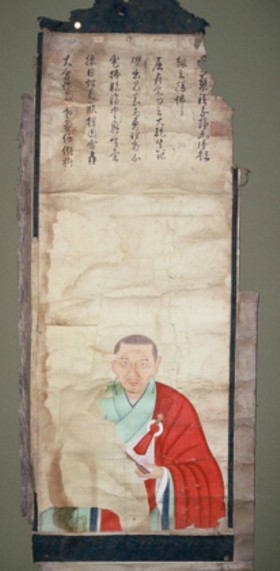
Ingen-brush's statue of Hiin no Zou
Until around 1960, the area from Jorakuji Temple in Higashi-Naganuma to Misawa River across Inagi Station on the Keio Line was a series of hills called Kizan. Due to subsequent construction work, this area has become flat land, but it is said that a medieval mountain castle called Naganuma Castle once stood here. In the early modern period, Daikizan Komyoin Hoonji, a subsidiary temple of Ujimanpukuji of the Obaku sect, was founded in 1774. In the 1900s, Hoonji Temple was abandoned, but some of the cultural properties owned by the temple were moved to Taishido Hall in Higashi-Naganuma, where they will be carefully stored. (Currently stored in the Inagi City Cultural Property Storage as the Taishi-do hall has been abolished.)
There are currently 11 paintings and texts owned by the former Hoonji Temple, dating from the late 17th century to the mid-19th century. Including the statue of Hiin by Shinpitsu, the founder of Uji Manpuku-ji Temple, Ingen Zenji (Chinese Zen monk who introduced the Ingen bean), as well as the first chief priest Tsunekatsu Toshu, who founded Hoon-ji Temple. There are also hand-painted statues of the monk Hyakusetsu and books. Also preserved are a plaque with the words ``Konkomyoden'' written on it and a couplet. These materials can be said to be important in understanding the true origins of the few Obaku sect temples.
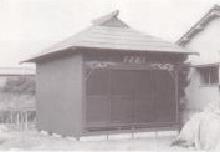
Taishido in Higashi-Naganuma
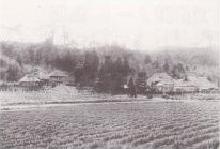
Old view of Jorakuji Temple and Kameyama
| Name | era | |
|---|---|---|
| 1 | Statue of Hakugakure (written by Ingen) |
late 17th century |
| 2 | Statue of Hyakuen Osho (by Toshu) |
late 18th century |
| 3 | Statue of monk Kendo Kyoko (-) |
1857 (4th year of Ansei) |
| 4 | Classic book 1 (written by Osho Kaizan) |
|
| 5 | Classical text 2 (written by Baiso Daishi) |
Around 1700 |
| 6 | Classical text 3 “Unharashi Hakkyokai” (by Toshu) |
late 18th century |
| 7 | Classic 4: "Spring at Wakeguchiyama" (by Toshu) |
late 18th century |
| 8 | Classic 5: "A plum blossom in the valley" (by Toshu) |
late 18th century |
| 9 | Classical text 6 “Meigetsu Inhashin” (written by Toshu) |
late 18th century |
| 10 | Classic Book 7: Plaque “Konkomyoden” (written by Taiho) |
late 18th century |
| 11 | Tenkyoku 8 Conversation (-) |
1839 (10th year of the Tenpo era) |
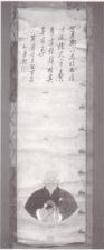
Statue of Hyakuen Osho
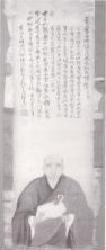
Statue of monk Kendo Kyoko
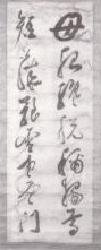
Canon 1 Written by Kaizan Osho
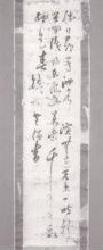
Canon 2 Written by Baiso Daishi
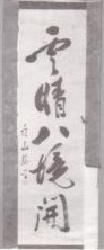
Classical text 3 “The Sea of Clouds, Eight Boundaries Open”
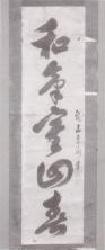
Canon 4 “Wakeguchi Yamaharu”
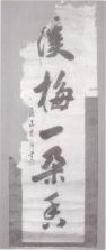
Classic book 5 “Keibai Ichika”
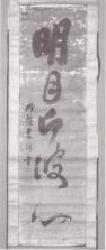
Classical text 6 “Meigetsu Inpashin”
Inagi City Education Department Lifelong Learning Division Tel: 042-377-2121